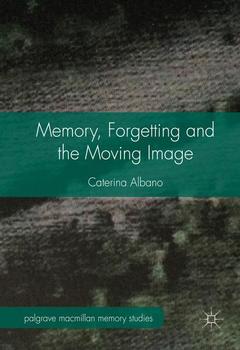Description
Memory, Forgetting and the Moving Image, 1st ed. 2016
Palgrave Macmillan Memory Studies Series
Author: Albano Caterina
Language: English
Subjects for Memory, Forgetting and the Moving Image:
Keywords
Memory studies; cultural history; psychology; moving image; autobiographical memory; forgetting; trauma; amnesia; latency; archive; filmic trace; contemporary art; sound; film installation; video installation; sound art; Kerry Tribe; Shona Illingworth; Bill Fontana; culture; history; memory; memory studies
Approximative price 105.49 €
In Print (Delivery period: 15 days).
Add to cartSupport: Print on demand
Description
/li>Contents
/li>Biography
/li>Comment
/li>
Bridges contemporary art (film/video and sound installation), neuropsychology and culture pointing to the synergies and insight that can be gained from this interdisciplinary approach for an understanding of individual and interpersonal, cultural and transcultural remembering Addresses topical issues concerning latency, amnesia, trauma, and interference as relevant to both individual, cultural and transcultural remembering, drawing attention to the impinging affective relevance of what is silenced or unremembered
Examines how the moving image has acted and still acts as cultural referent for memory and forgetting through a discussion of contemporary artworks and the immersive memory-scapes that they create
Considers the modern and contemporary conceptualization of memory and the theorization of forgetting and argues the centrality of forgetting for an understanding of memory and brings it to bear to today’s global memory practices

